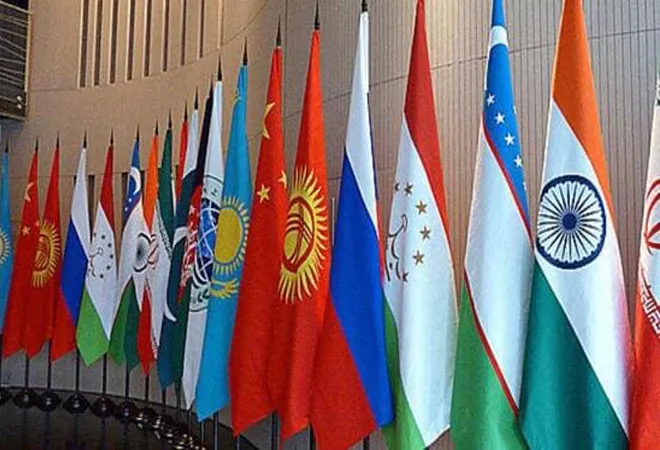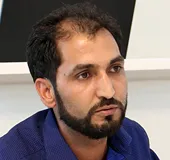
On 16 September, India took over the rotating presidency of the Shanghai Cooperation Organisation. During this summit, member states discussed global challenges and threats, including the Russia-Ukraine conflict, challenges of economic recovery, obstacles in global supply chains, and energy and food crises. Prime Minister Narendra Modi.
In 2001, with the inclusion of Uzbekistan, The Shanghai Five comprising China, Kazakhstan, Kyrgyzstan, Russia, and Tajikistan evolved into the SCO. With the addition of India and Pakistan in 2017, the SCO grew to become one of the biggest international organisations, representing almost 30 percent of the global GDP and 40 percent of the world's population. Evolved over the past 20 years, the SCO, which now encompasses the geographies of Eurasia, South Asia, and Central Asia, is in dire need of regional and cross-regional connectivity for socio-economic development, trade, and people-to-people contact.
India, as the world’s largest democracy, has not only placed its perspectives and vision over these issues but has also been successful in motivating others to support the formation of an inclusive government in Afghanistan and aid the restoration of peace and the economic recovery of the country.
India and SCO
Since its admission to the SCO, New Delhi has steadfastly campaigned for the strengthening of collaboration on issues pertaining to regional security, defence, combatting terrorism, the illicit drug trade, etc. SCO is a useful platform for New Delhi to periodically engage with its regional counterparts on various regional, security, and political issues. India, as the world’s largest democracy, has not only placed its perspectives and vision over these issues but has also been successful in motivating others to support the formation of an inclusive government in Afghanistan and aid the restoration of peace and the economic recovery of the country. The SCO also gives India the chance to start global and regional counterterrorism measures as well as regional efforts to combat the illicit drug trade, which is currently being utilised by India's hostile neighbours to do social harm and target its youth. For example, New Delhi can sensitise the SCO member countries not only on Pakistan’s narco-terrorism but also its mindless use of terrorism in the extended neighbourhood of the Eurasian region. In this regard, New Delhi can use SCO’s Regional Anti-Terrorist Structure (RATS) to boost cooperation and coordination for combating regional security challenges and information gathering and sharing. RATS maintains a database of terrorists and terror organisations from across its member countries. Furthermore, through joint counterterrorism exercises under RATS, member countries train armed personnel to strengthen their counterinsurgency grid and increase coordination amongst the group. The presence of dreaded global and regional terror outfits, such as the al-Qaeda, Islamic State Khorasan Province (ISKP), Lashkar-e-Taiba (LeT), Jaish-e-Mohammed (JeM), Islamic Movement of Uzbekistan (IMU), and Islamic Jihad Union (IJU), can be a binding force for SCO member countries to counter these terror outfits for regional peace and security.
As a loud advocate for regional and transregional connectivity, New Delhi may use the SCO to pressure Pakistan to change its position and strategy on tying together Central Asia and South Asia.
India has made serious efforts to promote peace, prosperity, and stability throughout the whole Eurasian area, in general, and amongst the SCO members, in particular, since it gained full membership. As a loud advocate for regional and transregional connectivity, New Delhi may use the SCO to pressure Pakistan to change its position and strategy on tying together Central Asia and South Asia. Pakistan has previously obstructed India’s interests in the geopolitical, economic, and cultural spheres by refusing to allow connectivity and energy projects such as The Turkmenistan–Afghanistan–Pakistan–India (TAPI) Pipeline (TAPI) to pass through its borders. Additionally, New Delhi can utilise the SCO to promote the International North-South Transport Corridor and the Chabahar Port Project (INSTC).
A trilateral working committee was also established in 2020 by India, Iran, and Uzbekistan to collaborate more closely on the Chabahar port and other connectivity initiatives.
In an era of multilateral and multi-vector foreign policy, SCO can be harnessed to ensure greater harmony amongst the member countries to meet common challenges and geostrategic concerns. So far, Russia and China seem to be in the driver’s seat of SCO; however, India, with its growing regional and global economic clout and strong intellectual capital, has to think in terms of investing its diplomatic capital in evolving SCO’s agenda and progressive programme.
Indian sovereignty is violated by CPEC's passage across Pakistan-occupied Kashmir, which forced India to remain aloof from BRI.
In order to strengthen its position within the forum, India can also take advantage of its long-standing bilateral ties with Russia, Iran, and the Central Asian Republics (CARs). China pursued imperial goals using the animosity between India and Pakistan. Additionally, it made use of the highly publicised Belt and Road Initiative (BRI) to increase its commercial presence in Central Asia, which is strategically situated at the intersection of Asia and Europe. A key BRI initiative, India's geostrategic, geoeconomic, and security worries have grown. Indian sovereignty is violated by CPEC's passage across Pakistan-occupied Kashmir, which forced India to remain aloof from BRI.
India can use its age-old relations with Iran, Russia, and the CARs to confront and neutralise the China-Pakistan axis. India and the Eurasian region have a long-standing cultural connection. In addition, its rising economic clout and its young demographics can help boost its position within the grouping. India, for its part, has so far chosen to take the ‘constructivist’ approach that can be leveraged to make the SCO a platform of agreements rather than disagreements.
The views expressed above belong to the author(s). ORF research and analyses now available on Telegram! Click here to access our curated content — blogs, longforms and interviews.



 On 16 September, India took over the rotating presidency of the Shanghai Cooperation Organisation. During this summit, member states discussed global challenges and threats, including the Russia-Ukraine conflict, challenges of economic recovery, obstacles in global supply chains, and energy and food crises. Prime Minister Narendra Modi.
In 2001, with the inclusion of Uzbekistan, The Shanghai Five comprising China, Kazakhstan, Kyrgyzstan, Russia, and Tajikistan evolved into the SCO. With the addition of India and Pakistan in 2017, the SCO grew to become one of the biggest international organisations, representing almost 30 percent of the global GDP and 40 percent of the world's population. Evolved over the past 20 years, the SCO, which now encompasses the geographies of Eurasia, South Asia, and Central Asia, is in dire need of regional and cross-regional connectivity for socio-economic development, trade, and people-to-people contact.
On 16 September, India took over the rotating presidency of the Shanghai Cooperation Organisation. During this summit, member states discussed global challenges and threats, including the Russia-Ukraine conflict, challenges of economic recovery, obstacles in global supply chains, and energy and food crises. Prime Minister Narendra Modi.
In 2001, with the inclusion of Uzbekistan, The Shanghai Five comprising China, Kazakhstan, Kyrgyzstan, Russia, and Tajikistan evolved into the SCO. With the addition of India and Pakistan in 2017, the SCO grew to become one of the biggest international organisations, representing almost 30 percent of the global GDP and 40 percent of the world's population. Evolved over the past 20 years, the SCO, which now encompasses the geographies of Eurasia, South Asia, and Central Asia, is in dire need of regional and cross-regional connectivity for socio-economic development, trade, and people-to-people contact.
 PREV
PREV


